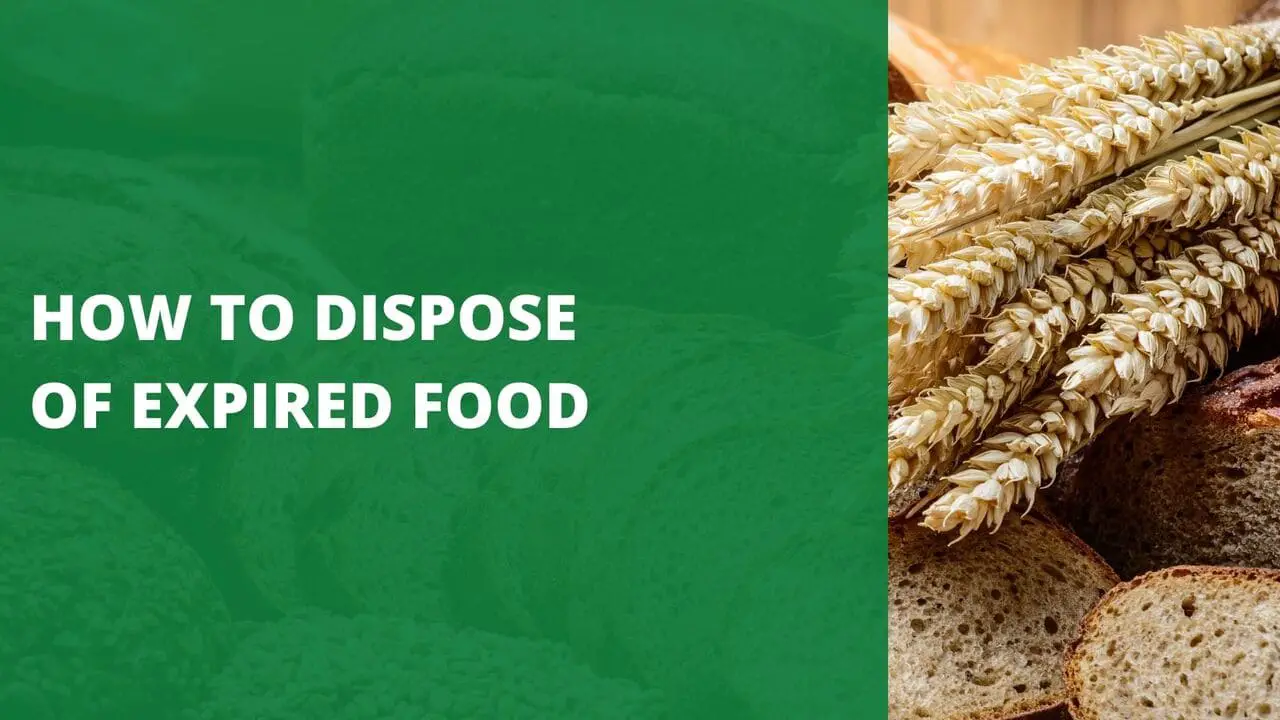Sometimes you look at your pantry and see a bunch of old canned food. It can be hard to know what to do with it. Just because the date has passed doesn’t always mean it’s bad. In fact, a lot of canned food can still be safe to eat after it’s expired.
Before throwing anything away, it’s important to know a few things. In this post, we’ll explain how to check if canned food is still safe, how to handle it carefully, and some smart ways to use expired items.
If the food really isn’t good anymore, we’ll also show you the right way to get rid of it. Let’s take a closer look at how to get the most out of your canned food, even if it’s past the date.
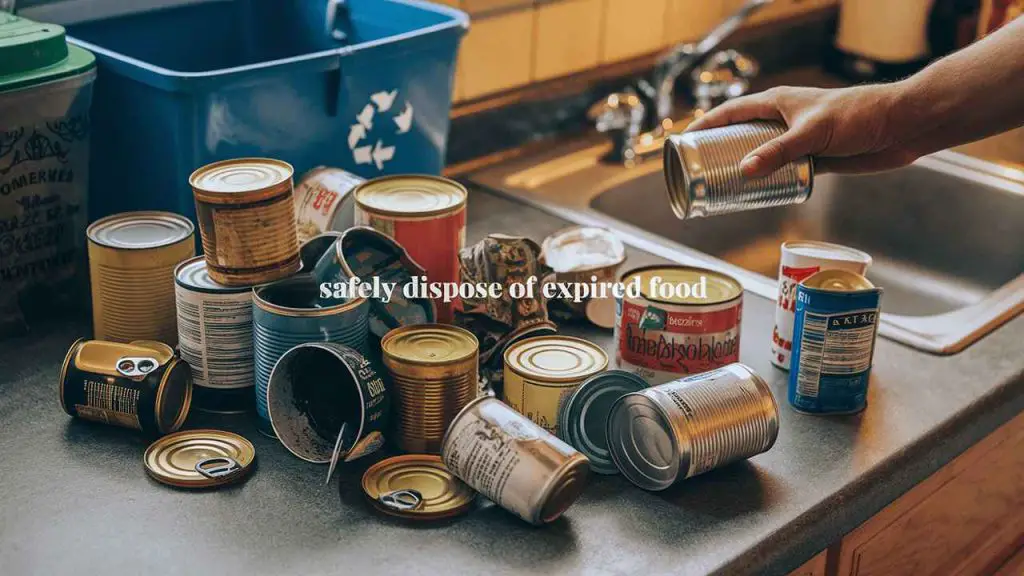
Assessing the Safety of Expired Canned Food
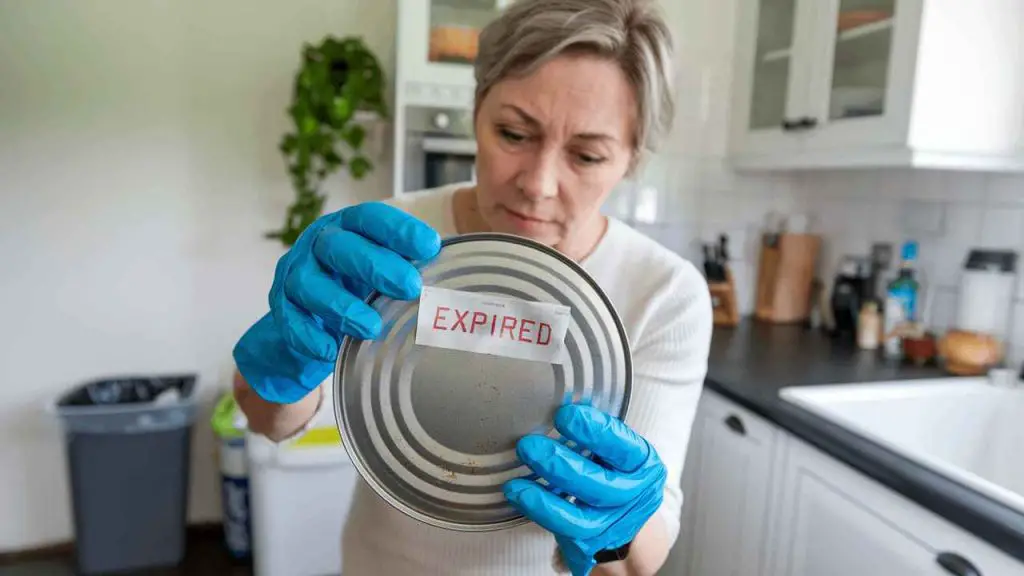
A. Inspect cans for damage or signs of spoilage
When assessing the safety of expired canned food, your first step should be a thorough visual inspection. Look for any signs of damage or spoilage on the can itself.
- Bulging or swelling of the can
- Leaks or seepage
- Rust or corrosion
- Dents, especially along the seams
If you notice any of these issues, it’s crucial to dispose of the can immediately. These signs often indicate that the contents have spoiled and could be dangerous to consume.
B. Understand expiration dates vs. “best by” dates
It’s important to differentiate between expiration dates and “best by” dates:
| Date Type | Meaning | Action |
| Expiration Date | Indicates when the food may no longer be safe to eat | Generally, discard after this date |
| “Best By” Date | Suggests optimal quality, not safety | Food may still be safe to consume after this date |
Many canned foods, especially those with low acidity, can remain safe to eat well beyond their “best by” dates. However, they may lose flavor and nutritional value over time. When in doubt, use your senses: if the contents look and smell normal upon opening, they’re likely safe to taste.
C. Identify high-risk items requiring immediate disposal
Some canned goods are more prone to spoilage and should be treated with extra caution:
- Canned meats
- Seafood products
- Dairy-based items
These high-risk items should be discarded after their expiration dates for safety reasons. Even if they appear fine, the risk of harmful bacteria growth is higher in these products.
For most other canned foods, you can assess their safety by:
- Checking for any unusual odors upon opening
- Looking for bubbling or fizzing in the contents
- Examining the color and texture for any abnormalities
Now that we’ve covered how to assess the safety of expired canned food, let’s move on to the next crucial step: safe handling of expired canned goods. This will ensure you protect yourself and others while dealing with potentially risky items.
Safe Handling of Expired Canned Goods
A. Perform smell and taste tests before consumption
Before consuming any expired canned food, it’s crucial to use your senses:
- Open the can carefully
- Inspect the contents visually
- Smell the food for any off odors
- If everything seems fine, taste a small amount
Remember, your senses are your first line of defense against spoiled food.
B. Recognize signs of spoilage (bubbling, odors)
You should be vigilant for these signs of spoilage in expired canned goods:
| Sign of Spoilage | What to Look For |
| Swollen or dented cans | Visible bulges or deformities |
| Rust | Any rust spots on the can |
| Leaks | Visible liquid or residue around seams |
| Off smells | Any unusual or unpleasant odors |
| Mold | Visible growth on the food |
If you notice any of these signs, it’s best to discard the food immediately.
C. Take precautions with pressurized cans
When dealing with pressurized cans that have expired:
- Handle the can carefully to avoid sudden release of pressure
- Open the can away from your face and body
- Listen for any unusual hissing sounds when opening
- If you notice excessive pressure or unusual sounds, dispose of the can safely
Next, we’ll explore ways to repurpose expired canned food that’s still safe for consumption, providing you with creative options to minimize waste and make the most of your pantry items.
Repurposing Expired Canned Food
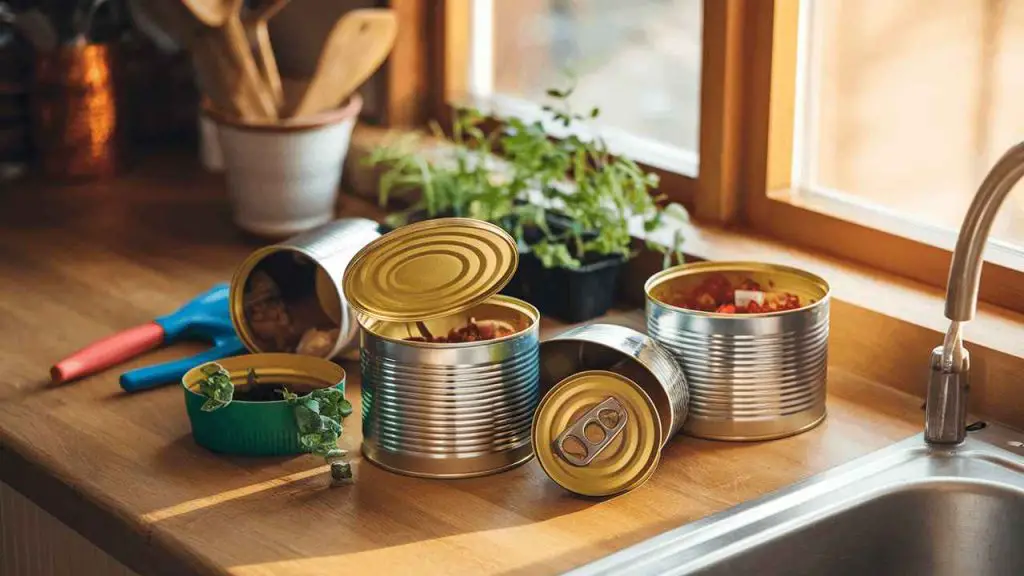
A. Compost suitable items (fruits and vegetables)
If you have expired canned fruits or vegetables that are no longer suitable for consumption, composting can be an excellent way to put them to use.
By adding these organic materials to your compost bin, you’ll contribute to creating nutrient-rich soil for your garden. Remember to remove the contents from the can before composting.
B. Use as animal feed or livestock food
Some expired canned foods may still be suitable for animal consumption. However, it’s crucial to exercise caution and consult with a veterinarian before feeding any expired food to pets or livestock.
While the reference content advises against feeding pets expired food, it’s worth discussing specific cases with a professional to determine if certain items can be safely repurposed for animal feed.
C. Create decoys for emergency situations
In emergency preparedness, expired canned goods can serve a unique purpose. You can use them as decoys to deter potential intruders or to create the illusion of a well-stocked pantry.
This strategy can be particularly useful in situations where you want to protect your actual food supplies.
| Repurposing Method | Suitable Items | Considerations |
| Composting | Fruits and vegetables | Remove from can first |
| Animal feed | Varies | Consult veterinarian |
| Emergency decoys | Any canned goods | Ensure cans are intact |
When repurposing expired canned food, always prioritize safety:
- Inspect cans for damage, leaks, or bulging
- Assess the food’s texture, color, and smell
- Discard any items showing signs of spoilage or foul odors
- Trust your senses when determining if an item is safe to repurpose
Remember that while these methods can help reduce waste, it's essential to handle expired food responsibly. If you're unsure about the safety of a particular item, it's best to err on the side of caution and dispose of it properly.With these repurposing options in mind, next, we’ll explore proper disposal methods for those expired canned goods that cannot be safely reused or repurposed. For related tips, check out How to Dispose of Cooking Oil to handle kitchen waste responsibly.
Proper Disposal Methods
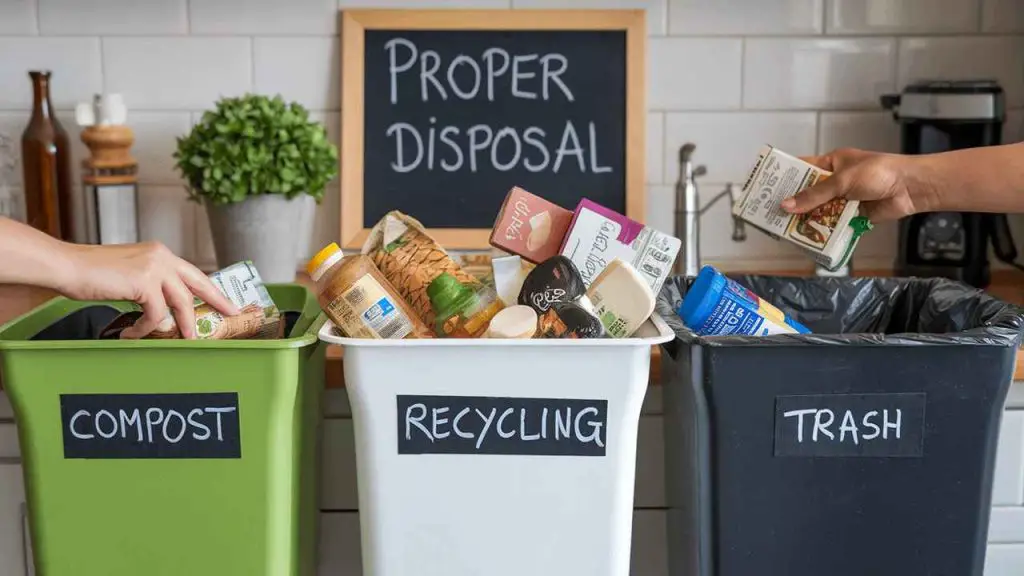
A. Recycle empty cans safely
When dealing with expired canned goods, it’s essential to recycle the empty cans responsibly. Here’s how you can do it:
- Rinse the can thoroughly to remove any food residue
- Remove the label (if possible) and recycle it separately
- Check with your local recycling center for specific guidelines
- Place clean cans in your recycling bin
Remember, recycling helps conserve resources and reduce waste in landfills.
B. Handle spoiled contents with care
If you encounter canned food that shows signs of spoilage, follow these steps:
- Wear gloves to protect yourself from potential bacteria
- Double-bag the spoiled contents to prevent leaks
- Dispose of the bagged contents in your regular trash
- Do not compost spoiled canned goods, especially meats
| Signs of Spoilage | Action |
| Bulging can | Discard immediately |
| Leaking | Dispose of carefully |
| Unpleasant odor | Do not consume, discard |
| Bubbling contents | Indicates spoilage, discard |
C. Avoid donating expired canned goods
While your intentions may be good, it’s crucial to refrain from donating expired canned food. Here’s why:
- Charities typically discard expired items, wasting their time and resources
- Expired food can pose health risks to recipients
- Food banks have specific guidelines for acceptable donations
Instead, focus on donating unexpired, safe food items to support those in need effectively.
Utilizing Safe Expired Canned Food

Now let’s explore how you can safely utilize canned goods that are past their best-by date but still safe for consumption.
A. Incorporate into cooking or heating processes
When dealing with expired but safe canned food, you can incorporate it into various cooking processes to ensure any potential harmful bacteria are eliminated. Here are some ways you can do this:
- Soups and stews: Add canned vegetables or meats to your homemade soups and stews. The extended cooking time will help kill any potential bacteria.
- Casseroles: Incorporate canned fruits or vegetables into baked dishes.
- Sauces: Use canned tomatoes or other vegetables to make pasta sauces or gravies.
| Cooking Method | Temperature | Time |
| Boiling | 212°F (100°C) | 10+ minutes |
| Baking | 350°F (175°C) | 30+ minutes |
| Simmering | 185°F (85°C) | 15+ minutes |
B. Consider non-consumable uses
If you’re unsure about consuming the expired canned food, you can still put it to good use:
- Plant fertilizer: Use the liquid from canned vegetables as a nutrient-rich fertilizer for your garden.
- Pet food supplement: Some canned foods, like fish or meats, can be added to pet food (consult your veterinarian first).
- Compost: Add the contents to your compost bin to enrich your soil.
C. Discard liquids from fruits and vegetables
When dealing with expired canned fruits and vegetables, it’s important to handle the liquid contents carefully:
- Open the can and inspect the contents for any signs of spoilage.
- If the contents look and smell fine, drain the liquid.
- Rinse the fruits or vegetables thoroughly under running water.
- Use the solid contents in your cooking, following the methods mentioned earlier.
Remember, while canned foods can often remain safe beyond their expiration dates, it's crucial to inspect each can carefully before use. Look for signs of damage, bulging, or unusual odors. When in doubt, it's always safer to discard the item rather than risk foodborne illness.
